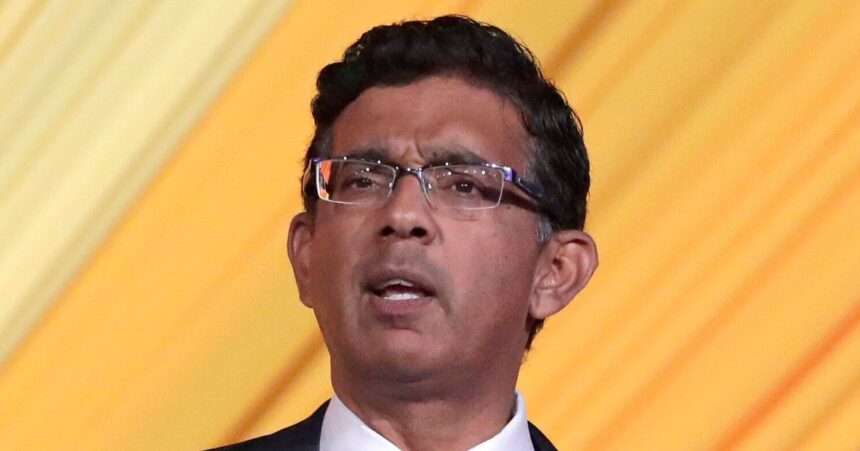Conservative filmmaker Dinesh D’Souza has issued a public apology to a Georgia man named Mark Andrews, who was falsely accused of ballot fraud during the 2020 election. D’Souza admitted that his documentary film “2000 Mules” relied on inaccurate information and misrepresented the facts surrounding the election.
The film, released in 2022, gained traction among conservatives who believed in the baseless conspiracy that the 2020 election was stolen from former President Donald Trump. The documentary alleged that individuals known as “ballot mules” were paid to collect and drop off fraudulent ballots in swing states that ultimately voted for Joe Biden. However, experts and election officials from both parties quickly debunked these claims.
In a recent statement, D’Souza acknowledged that the cellphone location data used in the film did not support the theory of ballot harvesting by “mules.” He specifically mentioned that surveillance videos used in the film were not correlated with the geolocation data as previously thought.
One of the individuals featured in the film, Mark Andrews, came forward publicly and initiated a lawsuit against D’Souza for his portrayal in the documentary. Andrews, whose face was blurred in the film, was depicted as committing a crime by depositing fraudulent votes in a drop box in Georgia. However, a state investigation revealed that Andrews had legally cast ballots for himself and his family at the same address.
The ongoing lawsuit filed by Andrews alleges that D’Souza knowingly spread lies and false information in order to enrich himself and others involved in the film. The case also highlights the use of unblurred images of Andrews and his license plate in promotional material for the documentary.
D’Souza’s apology to Andrews was not prompted by any settlement or duress but rather by a newfound understanding of the inaccuracies presented in the film. He expressed regret for any harm caused to Andrews and his family as a result of “2000 Mules.”
True the Vote, the nonprofit organization that supplied the cellphone geolocation data for the film, has also been named in the lawsuit. While they maintain that the main points of the film are accurate, they claim they had no editorial control over the documentary’s message.
Overall, D’Souza’s apology to Mark Andrews signals a shift in his stance on the validity of the claims made in “2000 Mules.” The ongoing lawsuit serves as a reminder of the consequences of spreading misinformation and the importance of upholding the truth in media and political discourse.







